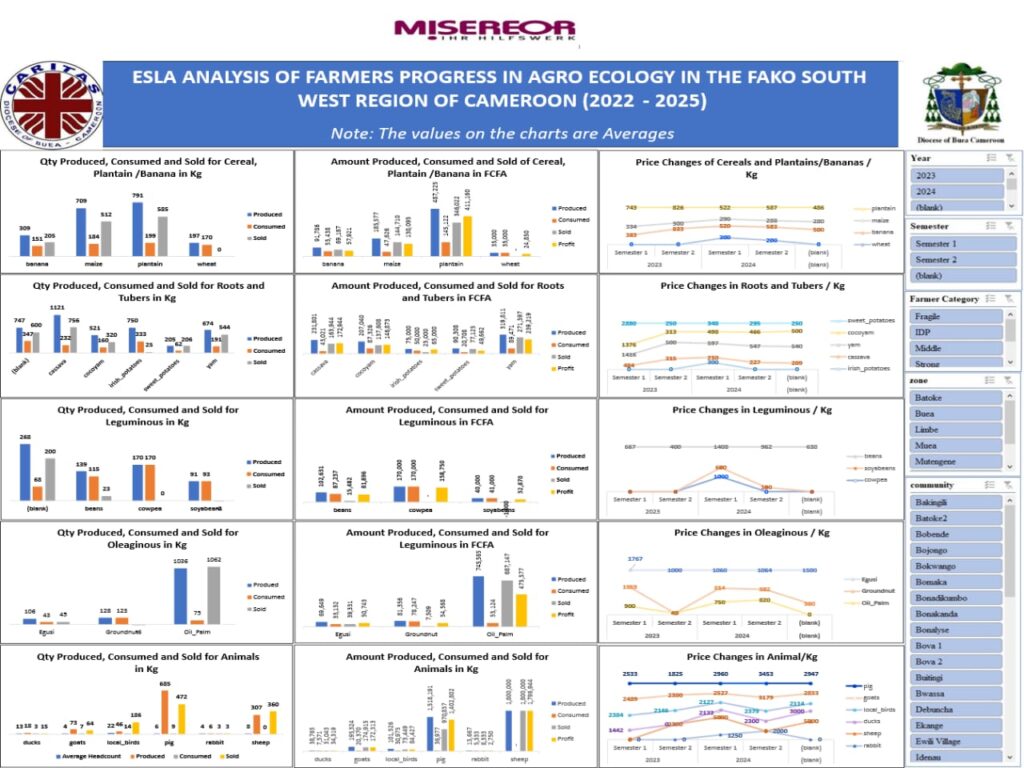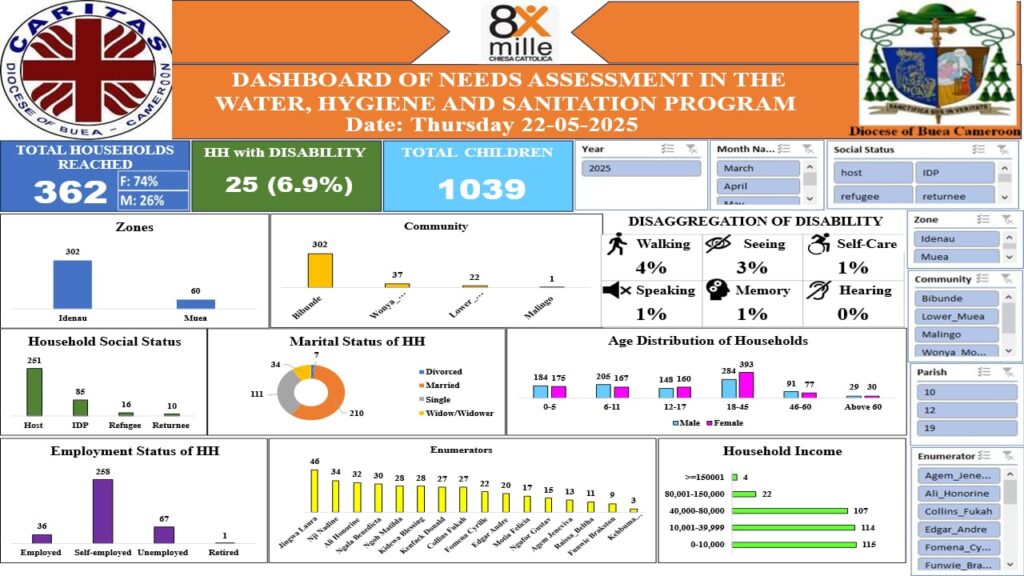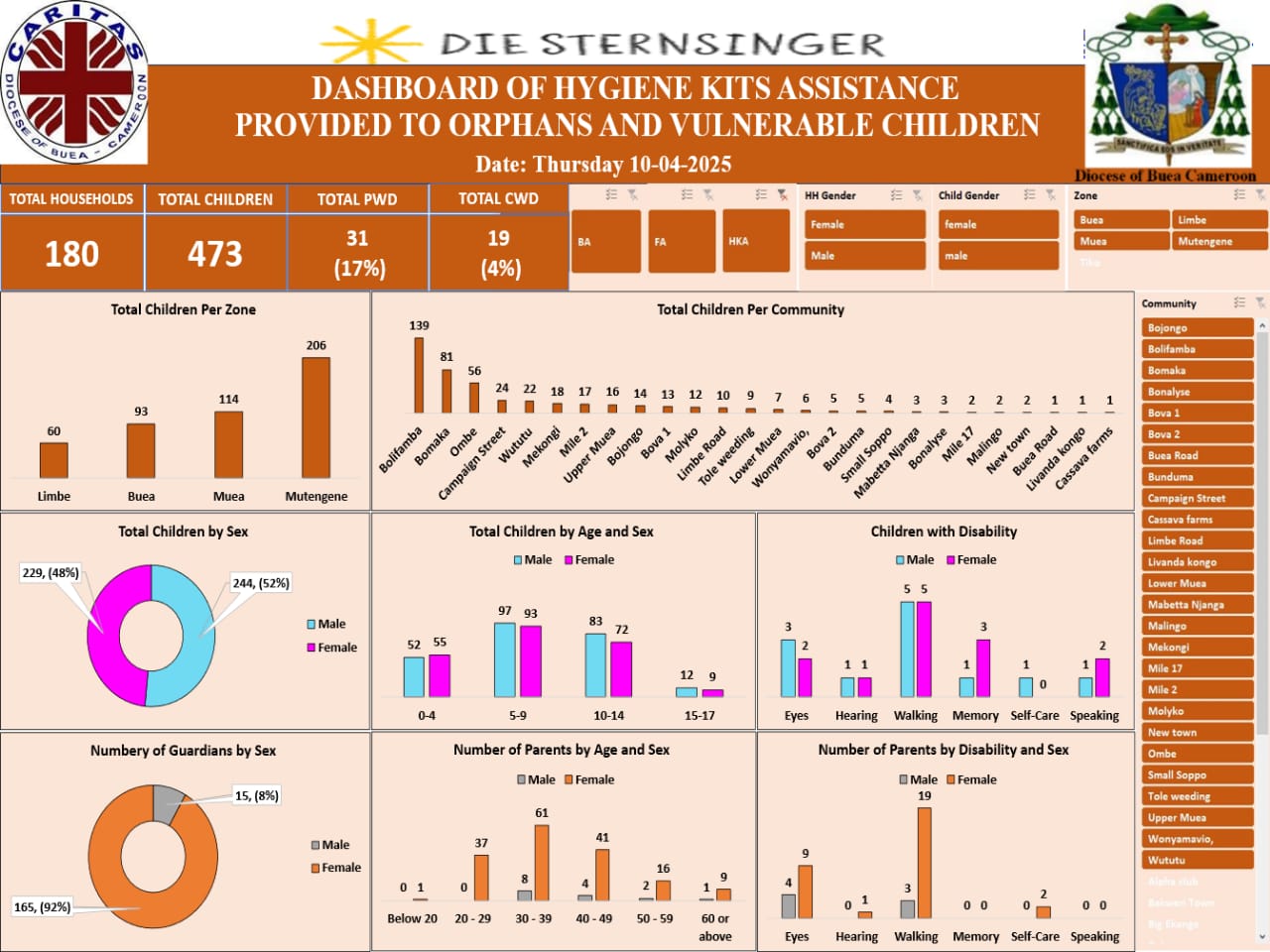TITLE
Community Psycho-social Support for Orphans and Vulnerable Children affected by the Socio-political Crisis in Fako (2024–2027)
OVC/KINDER
Project Overview
Summary
This 36-month project (August 1, 2024 – July 31, 2027) aims to mitigate the negative impacts of the socio-political crisis in the South West Region of Cameroon, particularly in Fako Division. The project focuses on protecting orphans and vulnerable children by integrating them into host families, providing them with birth certificates, food, hygiene kits, trauma healing, and education support. It is implemented by CARITAS of the Diocese of Buea with a target of reaching approximately 2,000 individuals, including 975 orphans and their host families.
Objectives
Impact Objective:
- Decrease the negative impact of the socio-political crisis among the population of the South West Region, Diocese of Buea.
Outcome Objectives:
- Improve protection for orphans through special measures to safeguard them and ensure equitable access to basic services.
- Reduce life-threatening risks for orphans and vulnerable children in conflict-affected areas.
Indicators (Expected Results)
- 975 orphans receive birth certificates.
- 975 hygiene kits distributed with sensitization on health and hygiene.
- Regular home visits conducted for 975 orphans.
- Food assistance provided to 975 orphans.
- 975 orphans integrated into host families for protection and dignity.
- Economic recovery support provided to 975 host households.
- Trauma healing services provided to 975 orphans.
- Strengthened accountability to affected populations and stakeholders.
- Capacity building for project staff.
AGRO-ECOLOGY
Promoting Agro-Ecology and Improving the Production and Income of Rural Households in Buea (2025–2029)
SARDEP
Project Overview
Summary / Goal
Contribute to the sustainable improvement of livelihood and strengthening of the resilience of rural households in the Diocese of Buea.
Objectives
- Train farmers on agro-ecological techniques including crop diversification, green manure, crop rotation, and organic fertilizer use.
- Enhance farmers’ skills in nutrient requirement calculations and selection of quality seeds.
- Improve livestock management through training on infrastructure, feeding, and biosecurity.
- Promote organic fertilizers and pesticides among farmers.
- Introduce agro-ecological practices in school gardens.
- Improve land use through training on intercropping, mixed cropping, and partitioning.
- Encourage record-keeping and data collection among farmers.
- Improve crop and animal disease identification and treatment using ethnoveterinary practices.
Indicators
- Number of farmers trained by category (IDP, fragile, middle income, families with pupils).
- Quantity and type of training topics delivered and officer involvement.
- Number of animals distributed per household by category.
- Percentage of new vs. returning farmers across zones.
- School garden training coverage among pupils.
- Monitoring figures for each of the 6 project zones.
- Usage of project tools such as reporting formats, record-keeping templates, and attendance forms.

WASH Project Overview
Access to Safe Drinking Water and Fighting Against Cholera Epidemic (October 2024 – August 2027)
Summary
The project seeks to improve families’ livelihoods, reinforce resilience, and enhance the quality of life within the Diocese of Buea by providing access to safe drinking water and combating the cholera epidemic. The intervention uses community engagement and needs assessments to guide the implementation of water, sanitation, and hygiene (WASH) activities over the period from October 2024 to August 2027.
Objectives
- Improve quality of life and resilience in communities affected by the socio-political crisis.
- Reduce the prevalence of waterborne diseases, including cholera.
- Promote hygiene through training, outreach, and provision of hygiene items.
- Ensure sustainable access to safe drinking water through infrastructure and community mobilization.
Indicators (Expected Results)
- 12 boreholes constructed
- 12 management committees formed
- 12 income-generating activities (IGA) initiated
- 180 cutlasses distributed
- 12 water tanks installed
- 12 visibility signboards set up
- 600 trained participants in hygiene and water safety
- 1200 security jackets distributed
- 120 rakes and 12 wheelbarrows provided
- 36 trash cans and 12 spraying cans distributed
- 24 files provided for monitoring purposes
- 2700 buckets with covers and 2700 without covers distributed
- 3600 total trained participants










